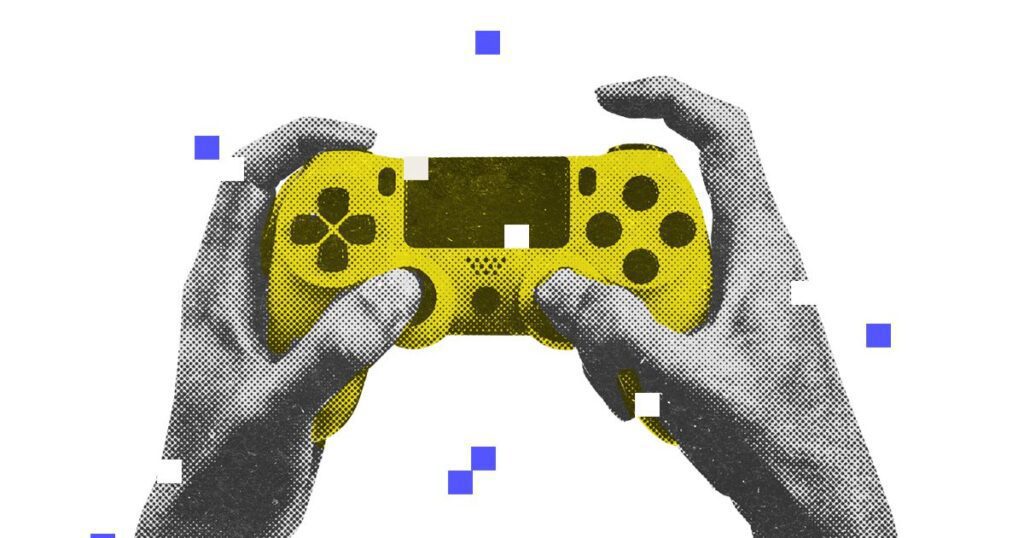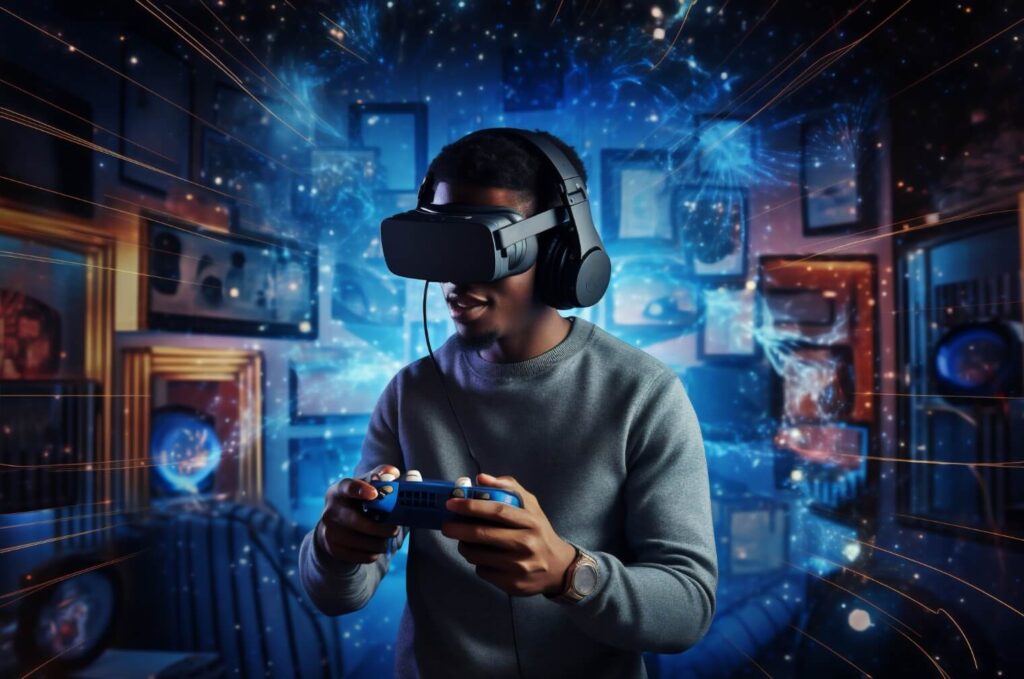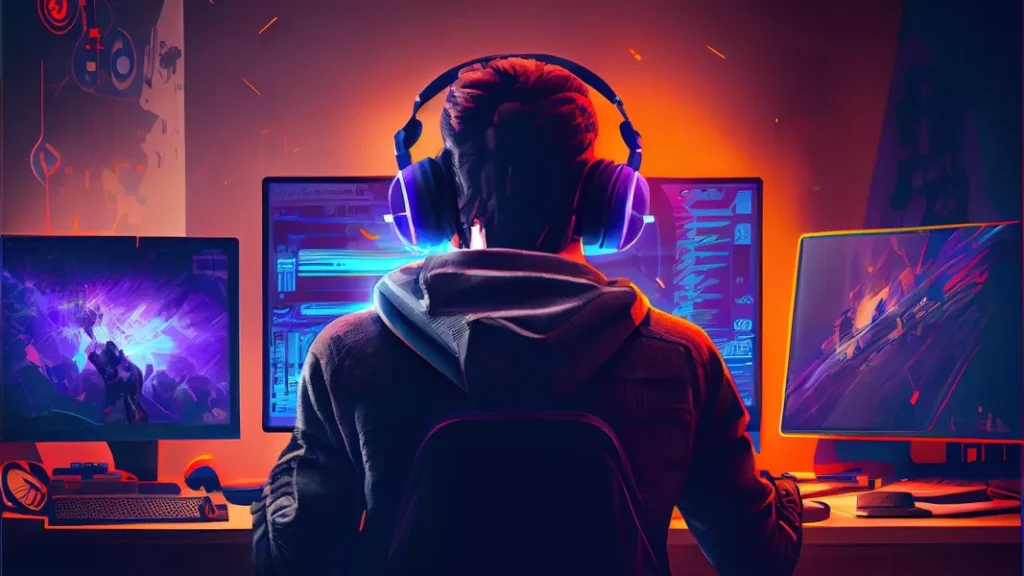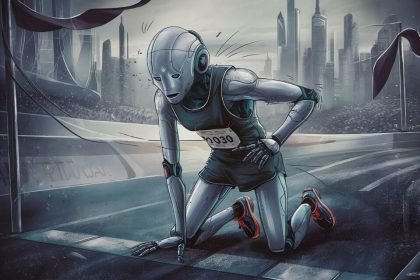Artificial intelligence (AI) is one of the biggest developments of the last century that has gradually infiltrated all industries. But what role does this technology play in the video game industry? Is it a tool to promote creativity and reduce costs, or is it a threat that destroys jobs?
Kasri Karimitar, a journalist and critic of video games, talks about the opportunities and challenges of this technology in this industry in an interesting and candid conversation.
From the definition of artificial intelligence to its application in game development
Karimitar started the discussion by explaining the double definition of artificial intelligence in the game industry: “There are two ways of looking at AI in gaming. One used in the past to design character interactions and complex AI behaviors, such as enemies that behave more realistically. But the newer definition refers to a tool that helps development teams in the production process; For example, in art design, story writing, or even dialogue writing.”
Referring to the importance of using artificial intelligence tools in game development teams, he said: “A blockbuster game may take years and cost hundreds of millions of dollars. Companies are looking for a way to shorten this long process. “This is where AI comes in and, for example, instead of a large design team, it can do environment design or 3D models with less cost and time.”
Why do audiences react negatively to artificial intelligence?
One of the interesting issues is the reaction of video game audiences to the use of artificial intelligence. Karimitar believes that many gamers have a negative attitude towards this issue: “The audience of the game is technology-loving, but when they feel that artificial intelligence has replaced human creativity, they react negatively. For example, if they find out that a part of the game, such as the story or art design, was done by AI, sometimes they feel that the final product is soulless or superficial.
He gave an example of games that have been heavily criticized for using artificial intelligence in design: “There have been companies that have used artificial intelligence to design posters or game environments. Some gamers consider this a betrayal of creativity. Of course, this issue is not always so severe; “Some projects have been hailed for their high quality or innovation.”
The effect of artificial intelligence on job positions
Another controversial aspect of AI is its impact on careers in the gaming industry. Karimitar says about this: “One of the main concerns is the reduction of job opportunities. Game development teams that used to number in the hundreds may in the future work with smaller teams equipped with AI tools. This means less human labor will be needed.
Referring to statistics of layoffs in recent years, he said: “Since last year, a large number of designers and art writers have lost their jobs due to the introduction of AI tools. “This trend is still expanding and companies are looking to reduce costs.”


Opportunities and challenges of using AI
Emphasizing the positive role of artificial intelligence in some fields, Karimitar said: “AI can shorten development time and allow smaller teams to produce big games. These tools also enable the creation of new and innovative content, especially in areas such as designing complex environments or simulating human behavior.”
But he warned that AI should not be used as a complete replacement for human labor: “AI alone cannot provide the quality that humans are capable of creating. “Human creativity still plays a vital role in the gaming industry, and that’s something AI can’t replace.”
Will AI revolutionize the future of gaming?
In response to the question of whether one day artificial intelligence can produce a game from zero to one hundred, Karimitar replied: “It seems unlikely that it will take over zero to one hundred so soon.” Big games require complex coordination between different parts; From art design to storytelling and programming. “AI can help in some of these areas, but it’s not yet possible to make a quality game entirely.”
Referring to the difficulties of using AI in the game, he said: “Developing a game is much more complicated than making a movie or animation. Although AI tools are becoming more advanced day by day, there is still a dependence on human creativity and coordination.”


The career future of game developers and the impact of new tools
Karimitar said about the future career prospects of game developers: “It is impossible to predict how many percentages of game development teams will be smaller in the future. But the use of AI certainly makes development teams more efficient. A team that has 300 people today may do the same thing with 100 people five years from now.”
He added: “This process is not a serious threat for those whose creativity is the main focus of their work. But people doing routine jobs may face a drop in demand.”
In the end, Karimitar stressed that artificial intelligence should be seen as a tool for progress, not a replacement for humans: “The gaming industry cannot move forward without AI. This tool is part of the development process. But we have to be careful how to use it so that human creativity is preserved and the final product still has its soul and originality.
At the end, he added: “Artificial intelligence cannot eliminate the need for human creativity in the game industry. But it can definitely become a powerful tool for expanding the boundaries of this industry.”
RCO NEWS
















